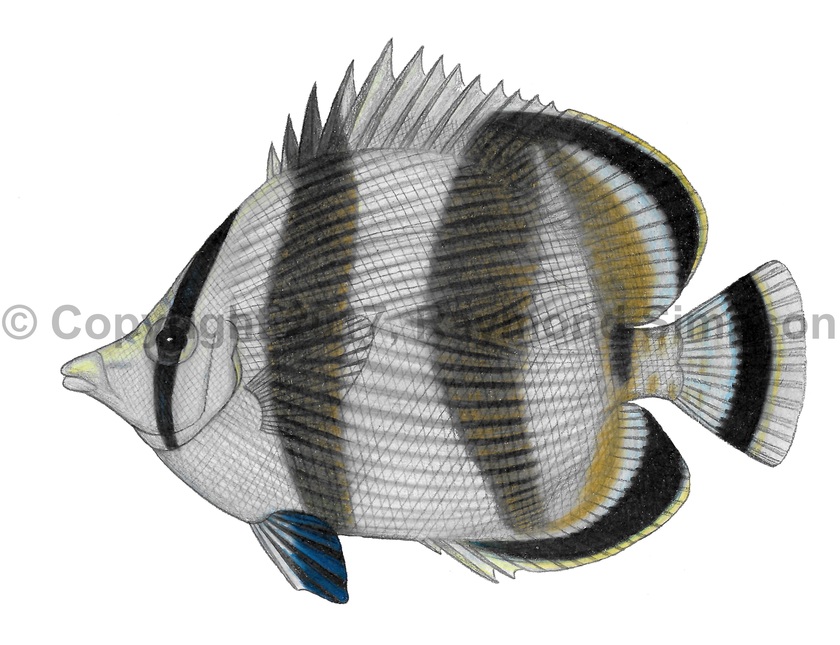
Common Name
Banded Butterflyfish
Year Described
Linnaeus, 1758
Identification
Dorsal Fin: XII, 19-20
Anal Fin: III, 16-17
Pectoral Fin: 15-16
Lateral Line Scales: 37-42
Body oval, symmetrical and highly compressed. Snout short with a tiny terminal mouth. Slender teeth in jaws in several rows. Preopercular edge lacks spines. Dorsal spines not elongated. Soft dorsal and anal fin angular and lining up cleanly with caudal fin. Second anal spine longest. Caudal fin evenly rounded. Pelvic fins thin and almost reach anal fin origin. Pectoral fin under angle of opercle. Lateral line arched in front but incomplete. Axillary scale present. Body, head, and most of median fins scaled.
Color
Body white with numerous oblique parallel gray/black lines radiating from midline. There are four bands on body: one through eye from nape to throat, one from anterior dorsal to belly, one from soft dorsal to anal fin, and one from the rear of the soft dorsal to caudal peduncle. Black bands on the rear of soft dorsal, anal, and caudal fins. Pelvic fin black with whitish front edge. Pectoral fin clear. Juveniles much like adults but have thinner bands and a ocellated spot on the soft dorsal fin.
Size
Maximum size to 16cm SL. Mature at >12cm SL.
Habitat
Coral reefs. Usually seen solitary or with a mate. Juveniles in seagrass or mangrove beds.
Range
Known from North Carolina to southeastern Brazil, including the Gulf of Mexico and Caribbean Sea. Also Bermuda. Vagrants north to Massachusetts.
References
McEachran, J.D. and J.D. Fechhelm. 2005. Fishes of the Gulf of Mexico. Volume 2: Scorpaeniformes to Tetraodontiformes. University of Texas Press, Austin. i-viii +1-1004.